Drug Review Profiles
Are you sure you'd like to remove this alert? You will no longer receive email updates about this topic.
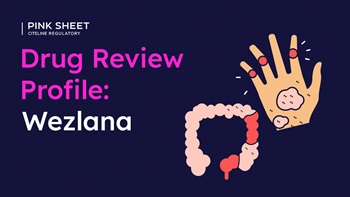
Biosimilars: US FDA’s Updated Scientific Thinking Led To Interchangeability For Amgen's Wezlana
Pink Sheet’s Drug Review Profile explores Amgen’s Wezlana, an interchangeable biosimilar to Janssen’s Stelara. FDA determined late in the review that switching studies generally would not be needed for interchangeable ustekinumab products, prompting Amgen to seek the designation.
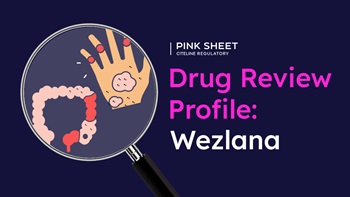
Two BLAs, One Suffix: FDA Diverges From Nonproprietary Naming Guidance For Amgen’s Wezlana
Assigning different suffixes to the prefilled syringe and intravenous formulations of Amgen’s ustekinumab biosimilar could create confusion and would not further the goals of the naming convention, the FDA said in explaining why it departed from its January 2017 final guidance.
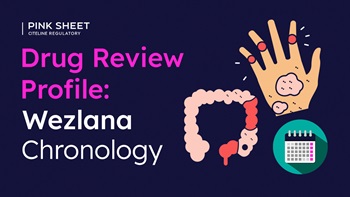
Wezlana Chronology: From Biosimilar To Interchangeable In The Blink Of An Eye
Pink Sheet’s Drug Review Profile looks at the timeline behind the development and FDA review of Amgen’s Wezlana (ustekinumab-auub), an interchangeable biosimilar to Janssen’s Stelara.
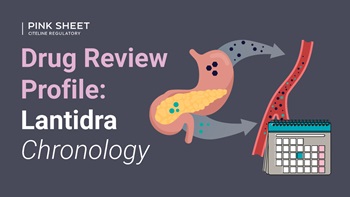
Lantidra Chronology: 19 Years From IND Submission To Approval For The Cellular Therapy
Pink Sheet’s Drug Review Profile looks at the timeline behind the development and FDA review of CellTrans’ treatment for type 1 diabetes.
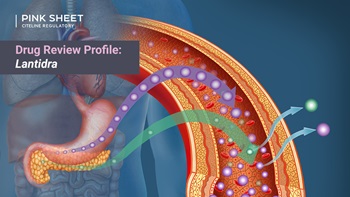
Lantidra’s First-Cycle Complete Response Letter Centered On Inspection And Product Quality Issues
Although the CRL delayed the cell therapy’s approval by almost two years, additional CMC-related testing requested by the FDA ultimately came to be seen as a good thing by sponsor CellTrans because it provided assurance of product consistency.
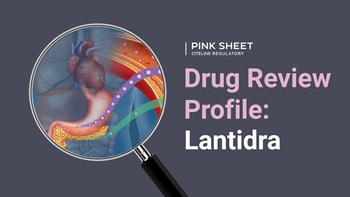
‘Poor Quality’ Submission: CellTrans’ Lantidra BLA Marked By Missing And Incongruent Data
FDA's review of documents and source data files to assess product efficacy and subject safety was complicated by missing and inconsistent data, the clinical reviewer said, concluding there was insufficient data monitoring during clinical studies or in preparing the documents for regulatory submission.
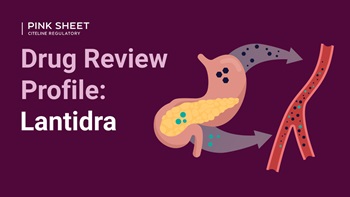
CellTrans’ Lantidra: Type 1 Diabetes Cell Therapy Overcame The Odds On Nontraditional Path To Approval
Despite a host of challenges with donislecel’s development and BLA, the US FDA approved based on clinical data from only 30 patients, using a clinically meaningful insulin independence endpoint and in a more carefully tailored population. Pink Sheet’s Drug Review Profile takes a deep dive into the FDA review of the first approved allogenic pancreas islet cell product.
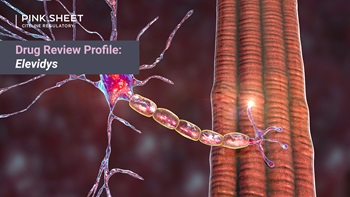
Let’s Go To The Video: Recordings Of DMD Patients After Elevidys Treatment ‘Compelling’ But Not Substantial Evidence
CBER Director Peter Marks urged the review teams for Sarepta’s gene therapy to consider pre- and post-treatment videos showing improved physical function, but clinical and statistical reviewers cited limitations in the patient videos and said they failed to inform whether micro-dystrophin is a suitable surrogate endpoint for accelerated approval.
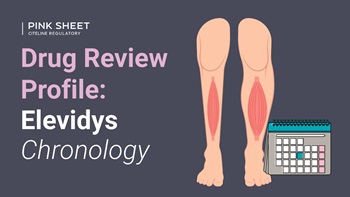
Elevidys Clinical Development: Confidence In Surrogate Endpoint A Longstanding Concern For FDA Reviewers
Timeline of the gene therapy’s clinical development and regulatory review shows agency staff repeatedly questioned the ability of micro-dystrophin to predict clinical benefit in Duchenne muscular dystrophy patients.
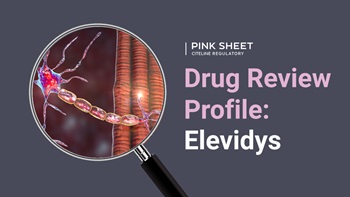
Sarepta’s External Controls Analysis Weakened By Elevidys Placebo Data Comparison
When placebo data from the only randomized trial of the Duchenne muscular dystrophy gene therapy were compared with Sarepta’s proffered external control data, the placebo subjects numerically outperformed the external controls, ‘calling into question the comparability of the external control group,’ an FDA statistical reviewer said.
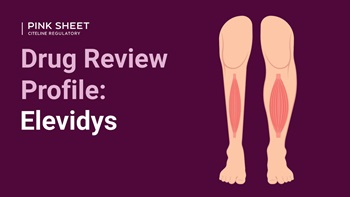
Elevidys’ Age-Restricted Indication Not Negotiable, CBER’s Peter Marks Told Sarepta
FDA team held several internal meetings on the gene therapy after the 12 May advisory committee, culminating in a teleconference with Sarepta in which the CBER director outlined his accelerated approval decision and reiterated recommendations to modify the ongoing EMBARK trial to better ensure confirmation of benefit. Pink Sheet's Drug Review Profile dives into the story behind the Elevidys review.
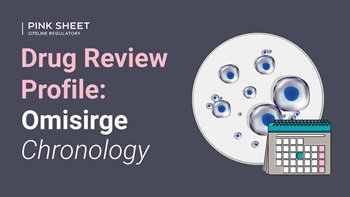
Omisirge Review Chronology: From Pre-IND Meeting To Approval
The Pink Sheet charts the 13-year journey from Gamida Cell's initial meeting with the US FDA to Omisirge's eventual approval ahead of an extended user fee date.
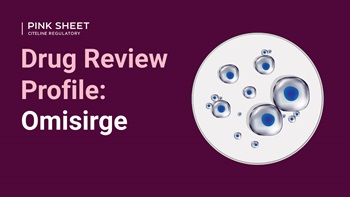
Expanding Cells, Expanding Access: Gamida Cell’s Omisirge Debuts New Donor Source For Stem Cell Transplant
Pink Sheet’s Drug Review Profile follows the FDA’s navigation of the first expanded umbilical cord blood graft with the first indication grounded in neutrophil recovery and infection incidence data.
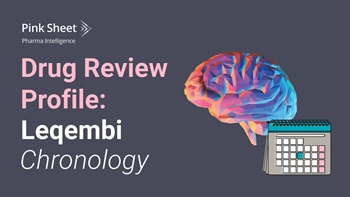
Leqembi Clinical Development: Aduhelm Opened The Door For Accelerated Approval
Timeline of lecanemab’s clinical development shows how, almost three years after telling Eisai and Biogen that their Phase II results did not support regular or accelerated approval, the FDA review division reversed course following its decision to approve aducanumab on a surrogate endpoint.

Leqembi Safety: Label Has Distinct MRI Schedule But Follows Aduhelm On ARIA Management
With the second amyloid-targeting antibody for treatment of Alzheimer’s, US FDA opted for a class-wide approach to management of amyloid-related imaging abnormalities, but with a product-specific MRI monitoring schedule that differs from that of Aduhelm.

Leqembi Phase II Missed Clinical Endpoint But Still Provided Support For Amyloid Surrogate
Pink Sheet's Drug Review Profile digs into the FDA memos on Eisai/Biogen’s lecanemab; Phase II clinical efficacy results were reviewed for whether they supported the likelihood of amyloid plaque reduction to predict clinical benefit, rather than whether they directly provided substantial evidence of effectiveness.
You must sign in to use this functionality
Authentication.SignIn.HeadSignInHeader
Email Article
All set! This article has been sent to my@email.address.
All fields are required. For multiple recipients, separate email addresses with a semicolon.
Please Note: Only individuals with an active subscription will be able to access the full article. All other readers will be directed to the abstract and would need to subscribe.